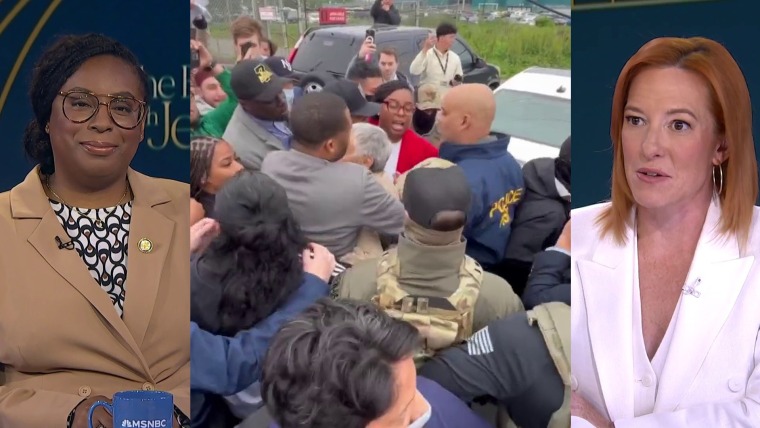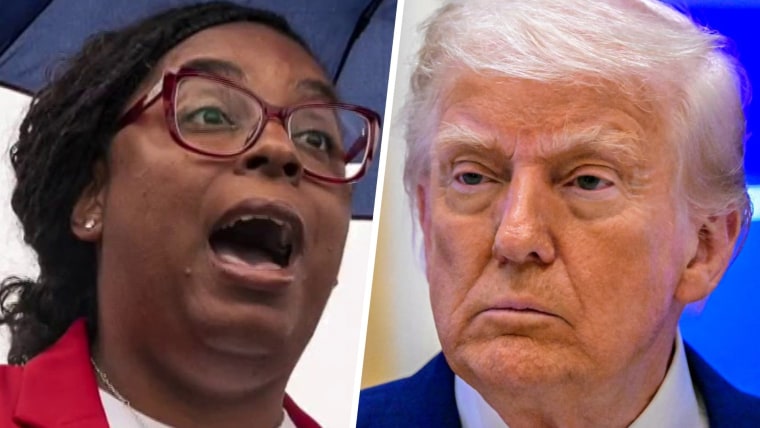Rep. LaMonica McIver, D-N.J., a sitting member of Congress, was released on her own recognizance following a Wednesday hearing. She faces federal charges in connection with the assault of federal law enforcement officers outside an Immigration and Customs Enforcement detention facility in Newark, New Jersey. That she was arrested on these charges is rare, and perhaps without a historical analog. In the few instances in which the federal government has pursued charges against a current member of Congress, it is typically for a crime related to political corruption.
There’s little question, per video footage from the May 9 incident, that McIver was in the middle of a scrum of people seeking to stop the arrest of Newark’s mayor, Ras J. Baraka, and enter the ICE facility. As a sitting member of Congress, McIver has the legal right to enter the facility, although she — of course — does not have the right to assault federal officers on the way in.
That she was arrested on these charges is rare, and perhaps without a historical analog.
But what people should know is that something is amiss with the decision to charge McIver. Before bringing charges against a sitting member of Congress, current, but paused, Department of Justice rules dictate that federal prosecutors confer with the Public Integrity Section. In addition, that section is supposed to sign off before charges are filled.
But apparently none of that happened. Published reports indicate that members of the administration told the Public Integrity Section to halt its consultations with other federal prosecutors while they review DOJ rules. Here, we see members of the executive branch pausing the typical procedures meant to protect sitting members of the legislative branch.
Part of what the Public Integrity Section does is ensure that if charges are brought against sitting members of Congress, they are brought for legal reasons, not political ones. Members of Congress serve as an important check against the executive; they should not be chilled into eschewing their oversight authority. Quite the opposite, members of the legislative branch must feel confident that they can carry out their functions as the leaders of a co-equal branch, and that political appointees will not weaponize the DOJ against them when they do. This is exactly what the Public Integrity Section was designed to guard against.

Perhaps, if the Public Integrity Section were consulted, they would have pointed to a potential constitutional hurdle related to this prosecution. The “speech or debate” clause in the Constitution is designed to support the independence of the legislative branch by giving members of Congress immunity from criminal or civil suit for actions taken while engaged in legislative activities, including oversight activities. The DOJ will almost certainly argue that McIver’s behavior transgressed the bounds of legitimate legislative activities.
The apparently paused DOJ rule which dictates that the Public Integrity Section be consulted prior to filing the type of charges filed against McIver, and the “speech or debate” clause, both act as a bulwark against the prosecution of members of the Legislature for doing their jobs.
The thing we should worry about is that the specter of being on the receiving end of a federal criminal complaint will chill the legitimate activities of the members of our legislative branch. We don’t want a government designed to stand on three legs to end up teetering on two.

